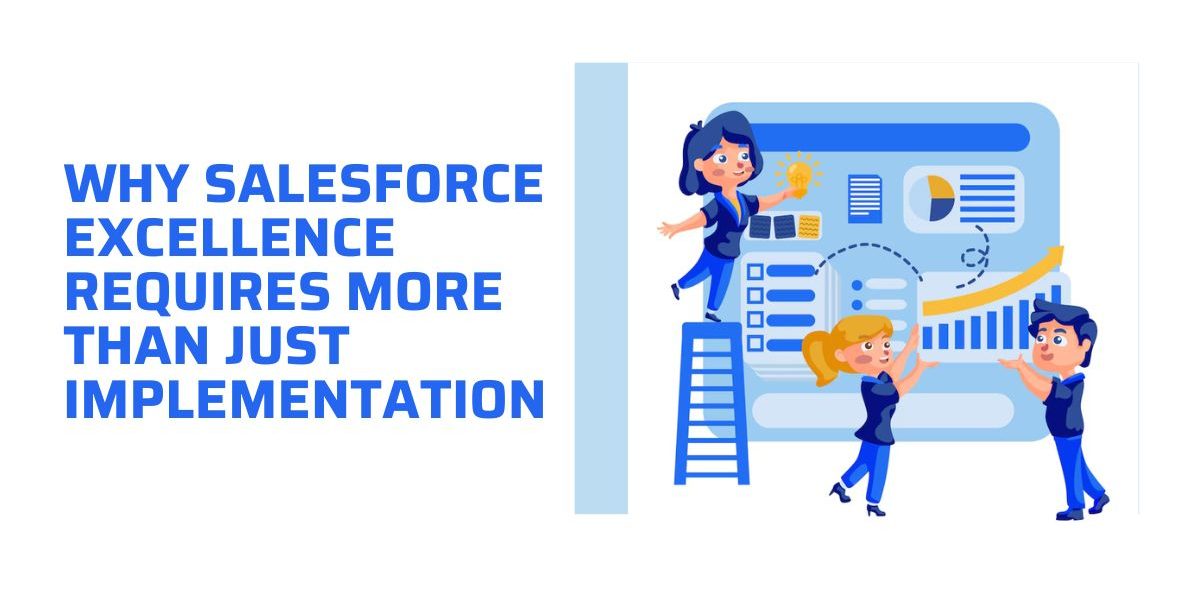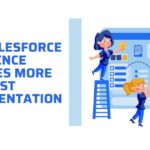Salesforce is widely acknowledged as the leading CRM platform. It provides a variety of tools for marketing, sales, service, and more. But, just adopting Salesforce does not suffice to guarantee long-term success in business. A lot of companies have slow growth or disappointing outcomes despite initial enthusiasm following implementation. That’s why Salesforce managed services are essential. They will ensure that your Salesforce ecosystem remains effective and scalable. They also ensure that it is compatible with your ever-changing business goals even after initial setup.
Implementation Is Just the Starting Line
The initial phase of implementation is just one of the first steps in your Salesforce experience. While it is a crucial step like establishing user roles, defining objects, creating dashboards and integrating important tools, real value is realized through continual adaptation and optimization. Without ongoing assistance, your CRM could quickly become dated, messy and out of sync to your business’s needs.
For instance sales strategies change and customer behavior changes and new technologies are developed. A static Salesforce system can’t keep up with these changes. Businesses require a flexible approach that goes beyond configuration and focuses on constant value creation.
Challenges of a “Set and Forget” Salesforce Model
Many companies spend a lot of money on Salesforce implementation only to go on without having an organized plan for maintenance or the strategic use. This could result in:
- Underutilization of Features: Teams typically stick to basic CRM functions, while leaving out the power of automation, AI-driven insight, or advanced analytics.
- Data Inconsistency: If there isn’t regular cleaning and management of duplicate records, out-of-date information and siloed data are able to creep into the system, affecting productivity.
- Declining User Adoption: As systems become cluttered and confusing, users start avoiding Salesforce or using it incorrectly.
- Security Risks: Insufficiently monitored permissions, inactive users, as well as insecure vulnerabilities that are not patched can cause data breaches and compliance issues.
- Missed Opportunities: When they do not monitor the user’s behavior and KPIs businesses are missing the most important information that can improve sales and service.
To avoid these problems, you require more than just a launch; you require continuous support and guidance.
The Role of Salesforce Managed Services
Salesforce managed services are an ongoing support plan which covers maintenance and optimization, as well as updates, training, and strategic consultation. Instead of hiring an entire staff in-house, companies can depend on Salesforce certified Salesforce experts to manage their CRM, and keep it running at its best.
Here’s what these services typically include:
- Ongoing Administration: Controlling users’ roles and permissions, workflows and reports.
- Data Management: Regular audits as well as deduplication and validation to ensure clear, actionable data.
- Performance Optimization: Identifying slow processes or inefficient configurations and recommending improvements.
- Release Management: Adapting your organization in Salesforce’s three-yearly updates and keeping your customized setup.
- Automation & Customization: Designing new triggers, flows, and integrations as the business requirements change.
- User Training & Adoption: Providing guidance and materials to help your team use Salesforce efficiently.
- Security & Compliance: Being aware of risk creating role hierarchies and ensuring GDPR compliance or specific industry-specific compliance.
Instead of having to struggle to keep up with the latest developments, companies who use managed services can enjoy the smooth, ever-changing Salesforce experience.
Driving Business Impact with Continuous Improvement
Salesforce, when properly used, is a powerful tool to increase efficiency and innovation. Continuous improvement via managed services results in:
- Faster Sales Cycles: by optimizing the quoting process, approvals and tracking leads.
- Improved Customer Experience: With more accurate data visibility, better case routing, and personal communications.
- Higher ROI: By aligning the platform to strategic goals and avoiding unnecessary replacement of tools.
- Scalability: Whether you’re expanding to new teams, regions or verticals Your CRM is able to adapt along with you.
- Innovation: Exploring AI-powered capabilities like Einstein and predictive analytics or advanced automation, without disrupting essential operations.
Real-World Insight
Imagine a mid-sized tech firm that has implemented Salesforce in order to control their B2B pipeline for sales. Initially it helped enhance lead tracking and reporting. After a few years, they were struggling with stagnant performance, overly cluttered dashboards and a rise in complaints from reps. Through a partnership with a managed service company to redesign their lead allocation process, implemented guides for selling routes and introduced more efficient automation. This not only improved the efficiency of their business, it also restored trust among users and dramatically increased the speed of pipelines.
Conclusion
Salesforce’s superiority doesn’t stop with the point of implementation. It starts there. In order to maintain a highly-performing CRM that meets your needs and is flexible to change and protects your data, you must be constantly monitored and strategic refinement. This is why many companies decide to hire Salesforce consulting company to help in enhancing, enhancing, and securing your CRM expenditure. With the right consultants on you, Salesforce becomes more than an application, but an asset that will continue to propel the business ahead.












